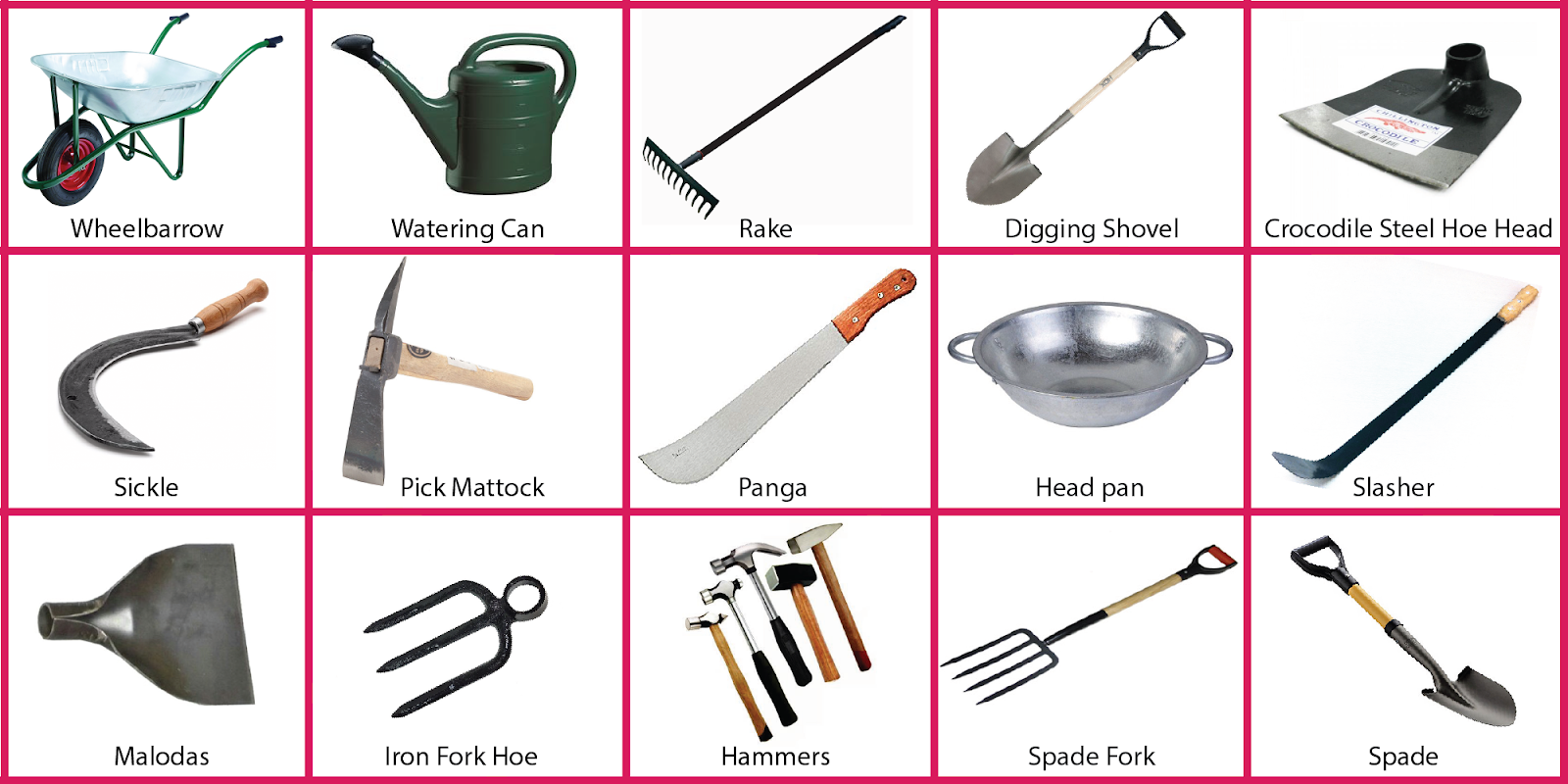Agriculture tools names play a crucial role in enhancing farming efficiency and productivity. Understanding the diverse range of tools available is essential for both novice and experienced farmers. In this article, we will explore various agriculture tools, their names, and their significance in modern farming practices.
Farming is an age-old profession that has evolved significantly over the years. The advent of technology has introduced various tools that have revolutionized the way we approach agriculture. From basic hand tools to advanced machinery, each tool serves a unique purpose that contributes to the overall success of agricultural operations.
As we delve deeper into the world of agriculture tools, this guide will not only provide a list of essential tools but also explain their uses and benefits. Whether you are looking to start a small garden or manage a large farm, knowing the right tools can make all the difference in achieving optimal results.
Table of Contents
- 1. Biography of Agriculture Tools
- 2. Importance of Agriculture Tools
- 3. Types of Agriculture Tools
- 4. Maintenance of Agriculture Tools
- 5. Safety Tips for Using Agriculture Tools
- 6. The Future of Agriculture Tools
- 7. Conclusion
1. Biography of Agriculture Tools
Agriculture tools have a rich history that dates back to ancient civilizations. Early farmers relied on simple hand tools made from wood, stone, and bone. As agriculture progressed, tools became more sophisticated, with metalworking techniques leading to the creation of plows, sickles, and hoes. Today, agriculture tools encompass a wide range of equipment, from hand-held devices to large-scale machinery.
| Tool Name | Type | Use |
|---|---|---|
| Hoe | Hand Tool | Weeding and soil cultivation |
| Plow | Mechanical Tool | Breaking and turning over soil |
| Tractor | Mechanical Tool | Pulling heavy loads and performing tasks |
| Spade | Hand Tool | Digging and turning soil |
2. Importance of Agriculture Tools
The use of agriculture tools significantly impacts the efficiency of farming operations. Here are some reasons why agriculture tools are vital:
- Increased Efficiency: Tools help farmers perform tasks more quickly and effectively.
- Improved Crop Yield: Proper tools ensure better cultivation practices, leading to higher yields.
- Labor Reduction: Mechanization reduces the physical labor required in farming.
- Enhanced Precision: Tools allow for more accurate farming practices, such as planting and fertilizing.
3. Types of Agriculture Tools
Agriculture tools can be broadly categorized into two main types: hand tools and mechanical tools. Each type serves a different purpose and can be utilized based on the scale of farming.
3.1 Hand Tools
Hand tools are simple, manually operated tools that require physical effort to use. Some common hand tools include:
- Hoe: Used for weeding and breaking up soil.
- Shovel: Ideal for digging and moving soil or compost.
- Rake: Used for leveling soil and gathering debris.
- Scythe: A tool for mowing grass or reaping crops.
3.2 Mechanical Tools
Mechanical tools are powered by engines or motors, making them suitable for larger farming operations. Some examples include:
- Tractor: A versatile machine used for various farming tasks.
- Combine Harvester: Used for harvesting crops efficiently.
- Sprayer: A tool for applying pesticides and fertilizers.
- Tiller: Used for preparing soil for planting.
4. Maintenance of Agriculture Tools
Regular maintenance of agriculture tools is essential to ensure their longevity and performance. Here are some tips for maintaining your tools:
- Clean tools after each use to remove dirt and debris.
- Sharpen blades regularly to maintain cutting efficiency.
- Store tools in a dry place to prevent rust and corrosion.
- Inspect tools for damage and repair or replace as needed.
5. Safety Tips for Using Agriculture Tools
Safety should always be a priority when using agriculture tools. Here are some essential safety tips to follow:
- Wear appropriate protective gear, such as gloves and goggles.
- Read the manual for mechanical tools to understand their operation.
- Keep tools in good condition to prevent accidents.
- Stay aware of your surroundings while operating machinery.
6. The Future of Agriculture Tools
The future of agriculture tools is promising, with advancements in technology leading to more efficient and sustainable farming practices. Innovations such as drones, automated tractors, and smart farming systems are transforming agriculture. These technologies not only increase productivity but also contribute to environmental sustainability.
7. Conclusion
In conclusion, understanding agriculture tools names and their significance is vital for anyone involved in farming. From hand tools to advanced machinery, each tool has its unique role in enhancing agricultural practices. We encourage you to explore the various tools available and consider how they can benefit your farming endeavors. If you found this article helpful, please leave a comment or share it with others who may benefit from it.
Thank you for reading! We hope to see you back for more informative articles on agriculture and farming practices.


